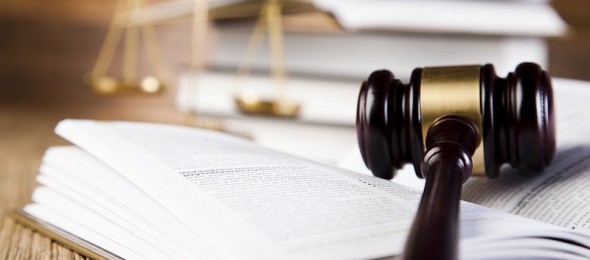Disputing would like to announce guest post writer Merril Hirsh has published a thought-provoking and timely article focused on the idea that special masters are well-positioned at the intersection between Alternative Dispute Resolution (“ADR”) and the courtroom. In “Special Masters: How to Help Judges Extend Their Reach… And Exceed Their Grasp,” Mr. Hirsh discusses how a special master may assist in broadening a judge’s reach by serving ADR roles that the judge not only lacks the time to perform, but also may not be well-positioned to perform.
Below is an excerpt from Mr. Hirsh’s article:
When Edmund Burke said that law “sharpens the mind by narrowing it,” he was not being kind. But it is difficult to deny there is some truth to it. Perhaps, by broadening our perspective on what judges can do with special masters, we can expand what our judges can do, period.
Mr. Hirsh discusses the idea of a multi-door courthouse proposed over 40 years ago by Harvard Law Professor Frank E.A. Sander in which grievants could find their way to many types of dispute resolution, and how this idea has flourished in the establishment of settlement programs, but not in using other types of ADR to assist dispute resolution.
Question 1: So when was the last time you had a court at a pretrial conference (say, apart from the Western District of Pennsylvania eDiscovery Masters Program (see description at http://bit.ly/2o2S9FQ)) discuss referring the case to a special master?
Question 2: So when was the last time you had a court at a pretrial conference (say, anywhere) not discuss referring the case for some kind of settlement conference or mediation?
In addition, Mr. Hirsh examines the limitations imposed upon special masters by Rule 53 of the Federal Rules of Civil Procedure (“FRCP”):
The very first words of the first (appointment) provision of Rule 53 say “Unless a statute provides otherwise, a court may appoint a master only to. …” Rule 53(a)(1)(emphasis added).
As these words reflect, it is not Rule 53 that empowers courts to make use of special masters. Judges have inherent authority to appoint special masters. And that inherent authority includes the power to use special masters in numerous and creative roles in which they can be effective.
Indeed, the limits the rule then places on the use of special masters, are, well, very limited. They apply mostly to a function special masters used to perform but now rarely do (at least at the trial level)—holding “trial proceedings” and making or recommending “findings of fact on issues to be decided without a jury.” Rule 53(a)(1)(B).
Otherwise, special masters can—without limitation—“perform duties consented to by the parties,” Rule 53(a)(1)(A), and can also “address pretrial and post-trial matters that cannot be effectively and timely addressed by an available district judge or magistrate judge of the district.” Rule 53(a)(1)(C).
According to Mr. Hirsh, “special masters can be used for almost any worthwhile case-related function that local judges and magistrate judges either lack the practical ability or are ill-positioned effectively to perform.” In addition, he states: “The potential special master roles are as numerous and diverse as creativity can make them.”
Mr. Hirsh then discusses various ways in which special masters can be used, not just to assist in case administration, but to bring a broader range of ADR skills into the courtroom. He also urges that the December 2015 amendments to the Federal Rules create particular opportunities for effective use of special masters.
Mr. Hirsh concludes:
There is a saying that alternative dispute resolution is what you make it. Special masters are what courts can make them. Special masters are not in competition with judges and magistrate judges. There is a creative way for courts to expand their reach by bringing this flexibility into judicial determination.
If anything, the most recent amendments to the rules increase the need for this creativity, as amended Rule 1 admonishes, “construed, administered and employed by the court and the parties to secure the just, just, speedy, and inexpensive determination of every action and proceeding.”
After all, a judge’s reach should exceed its grasp, or what’s a rule amendment for?
The full text of Mr. Hirsh’s article is available online in the International Institute for Conflict Prevention & Resolution’s Alternatives to the High Cost of Litigation newsletter.
Merril Hirsh, a partner in the Washington, D.C., office of Troutman Sanders LLP, is Co-Chair of the ABA Judicial Division Lawyers Conference Committee on Special Masters, and a Fellow of the Chartered Institute of Arbitrators and a long-time litigator. The views in his article are his and do not purport to reflect those of Troutman Sanders or its clients. His Troutman Sanders bio page is available at http://ow.ly/NsDbL.
Photo credit: verkeorg via Foter.com / CC BY-SA














